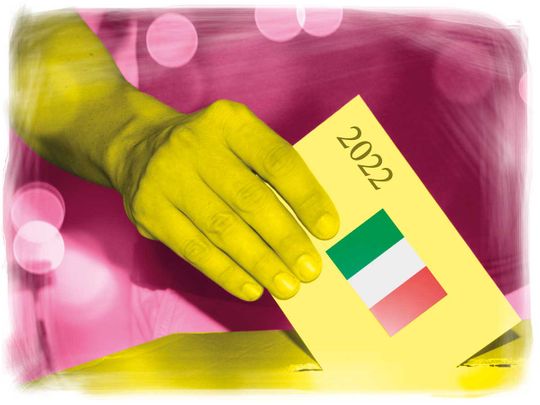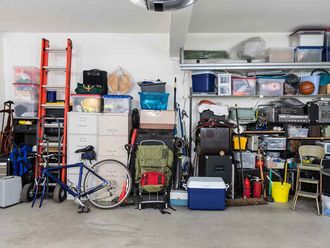
In any typical Italian summer, August is reserved for long, lazy days on the beaches or relaxing in the cooler temperatures of the hills and mountains. For those who can afford it, getting out of Milan, Turin, Rome, or any other city is a must. When the mercury hits 40 degrees Celsius, cooler beds must prevail.
Most lawyers, accountants, professionals — as much of Italy’s bloated public service that can — take annual leave.
For anyone trying to buy or sell a house, close a legal agreement, get any answer from any government department, or trying to do any business of any nature — urgent or not — forget August.
If only Italy’s politicians could. Right now, there’s a general election campaign underway — probably the last thing Italians want to hear about as they find some shade, slop on the sunscreen or sip on sodas.
For Meloni, who is in pole position to become the next prime minister, changing the constitution to allow for the direct election of the president of Italy is a priority.
Since the Second World War, Italy had become accustomed to general election campaigns and changes of government — swapping prime ministers more regularly than some mechanics change tyres. But right now, for the first time in a century, Italy is holding an autumn general election. Polling takes place on September 25.
Post-war politics in Italy is a complicated affair, one that has seen 64 national governments come and go since 1946. Indeed, it has only been in the past decade that two administrations have managed to complete their terms without recourse to further coalition deals or political horse-trading.
Italy’s constitution requires any government to have majority support in both the lower Chamber of Deputies and the upper Senate of the Republic. It’s a bar that’s hard to reach — which explains why there have been so many short-term governments — and the best way to meet the criteria is for parties to form blocs of similar thinkers. As things stand now, the nation’s mainly right-wing bloc is on track to win a majority in both houses of parliament, with the bloc benefiting from divisions among its opponents.
Silvio Berlusconi’s Forza Italia in the mix
On the basis of its election promises of tax cuts and higher pensions, a win by the conservative alliance may strain Italy’s public finances, but it would also be expected to crack down on illegal immigration — a sensitive topic since political, social and humanitarian upheavals across Saharan North Africa sent tens of thousands of refugees to seek safer havens on the northern side of the Mediterranean. Given its geographic position and islands reaching into what ancient Romans called Mare Nostrum — literally “Our Sea” — Italy has borne much of the brunt of refugees fleeing Libya and points west and south.
Recent opinion polls suggest the alliance could elect 245 lawmakers out of 400 at the Chamber, and 127 out of 200 at the Senate.
The conservative bloc includes Giorgia Meloni’s far right Brothers of Italy, Matteo Salvini’s — yes, remember him — right-wing League, and Silvio Berlusconi’s conservative Forza Italia and several minor centrist allies. Yes, in Italian politics today, Berlusconi — aged 85 — shows you’re never too old for a bit of bunga bunga campaigning.
The opinion polls and analysis show the centre-left led by Enrico Letta’s Democratic Party would elect 107 lawmakers in the lower chamber and 51 in the Senate, while the rest of the seats would be divided among parties outside these main blocs.
But for whatever bloc that does win next month’s election, the challenges are daunting. The European Union says that Italy will have the worst economic performance of all 27 countries that make up the world’s third-largest economy. Growth in Gross Domestic Product is projected at less than 1 per cent, consumer spending has plummeted, and some 40 per cent of its natural gas supply that came from Russia has been reduced to about 25 per cent in the fallout from the conflict in Ukraine. The Italians have now turned to Algeria for much of their energy needs.
Fall of Mario Draghi government
Parties of the centre and left have also simply failed to join forces since the election was called last month following the collapse of Mario Draghi’s broad “national unity” government. Simply put, right now, there is no mood for national unity.
Remember the 5-Star Movement? It’s likely to run alone and might pick up 27 seats in the Chamber and 12 in the Senate.
If there’s any consolation for the parties on the centre and left, there’s little chance that the bloc on the right will receive that golden two-thirds majority that would allow it to make sweeping constitutional reforms without having to put them to Italians in a referendum.
For Meloni, who is in pole position to become the next prime minister, changing the constitution to allow for the direct election of the president of Italy is a priority.
For most Italians, the economy is the priority. Almost one in three Italians under the age of 24 are out of work while the overall unemployment rate means that one in every 10 is without work. For every €1 in circulation in its national economy, a further €1.50 is owed in debt.
The coronavirus pandemic badly affected Italy, becoming the first and worst hit country in Europe. Four years ago, before Covid-19, when Italians last voted, Italy’s debt-to-GDP ratio stood at €1.35 to €1.
Dealing with the fallout from coronavirus will be a priority for any new government, with Brussels putting up almost €200 billion in economic recovery funds and applying strict terms to how that money can be spent. A centre-right bloc promising tax cuts will find it difficult to balance its political promises made now to a sunbathing electorate against the purse strings pulled by the European Commission.
In Brussels too, there are memories that the collapse of the Italian economy under Berlusconi a decade ago almost brought an end to the euro, the common currency used by 19 of the 27 EU nations.
Ironic then that Draghi, who was the president of the European Central Bank, made his reputation for saving the euro. Now, it is his downfall that has brought Italy to this point in an August of sweaty politics and economics.










